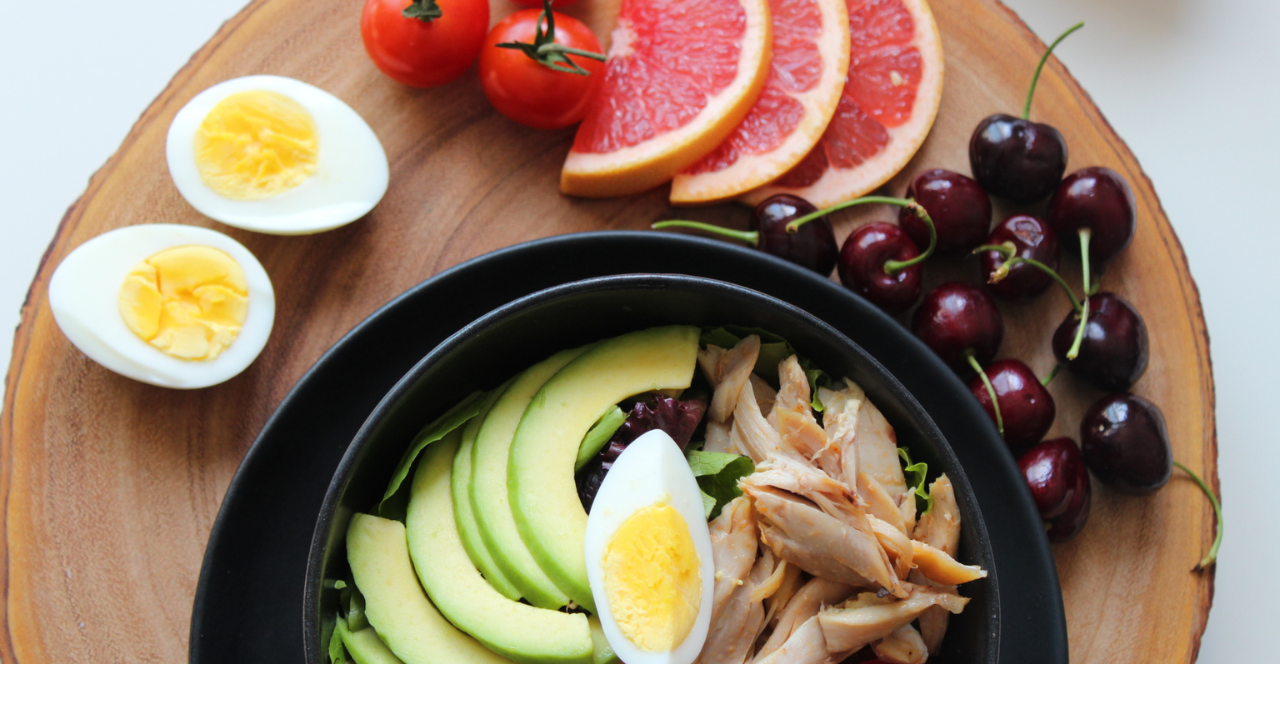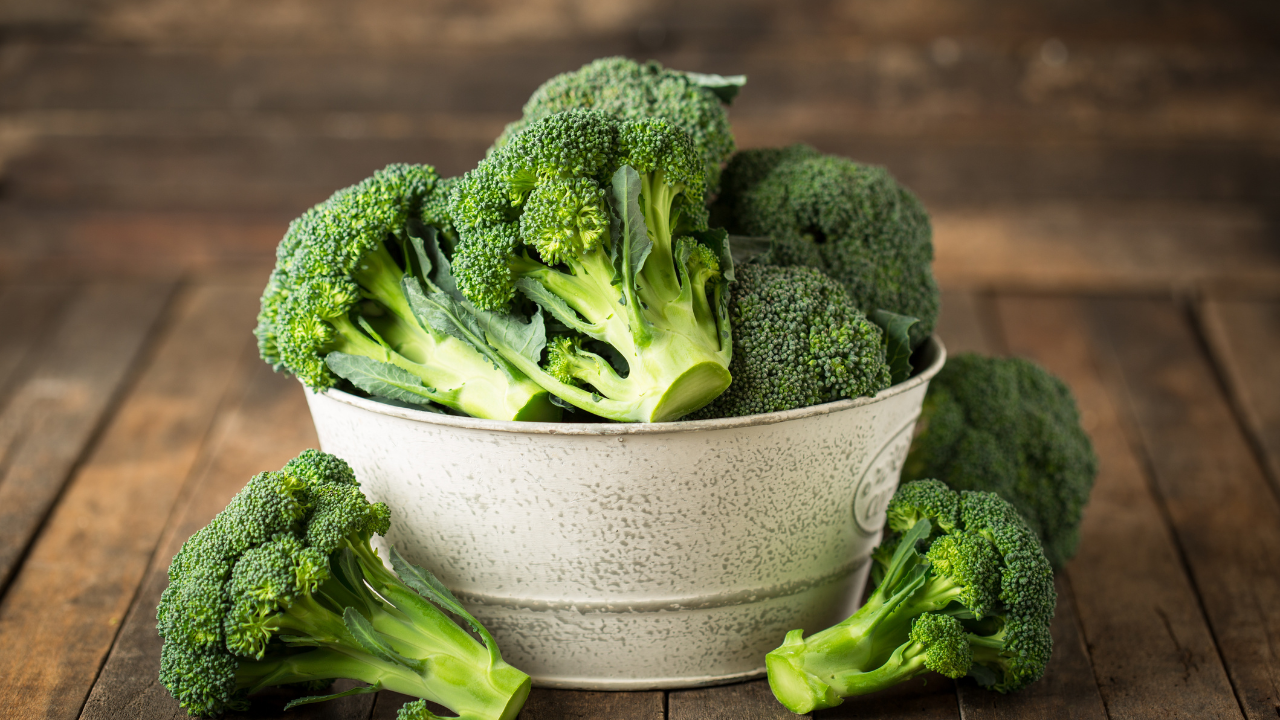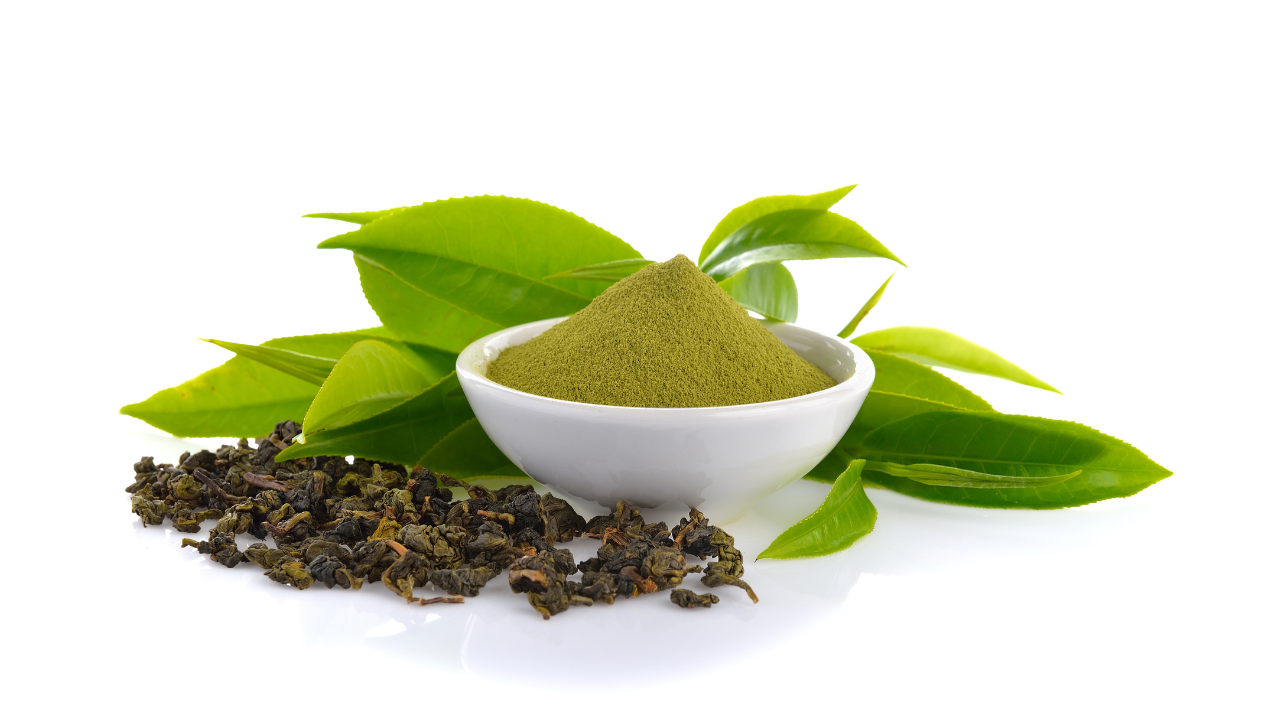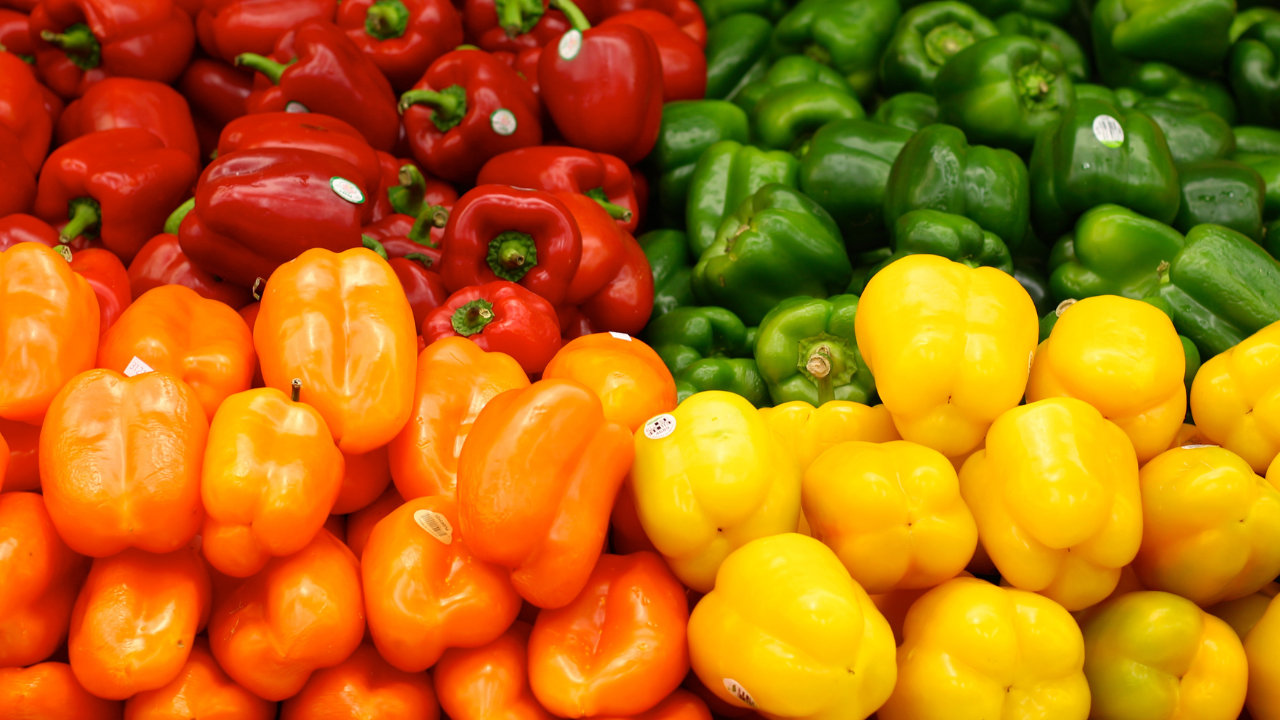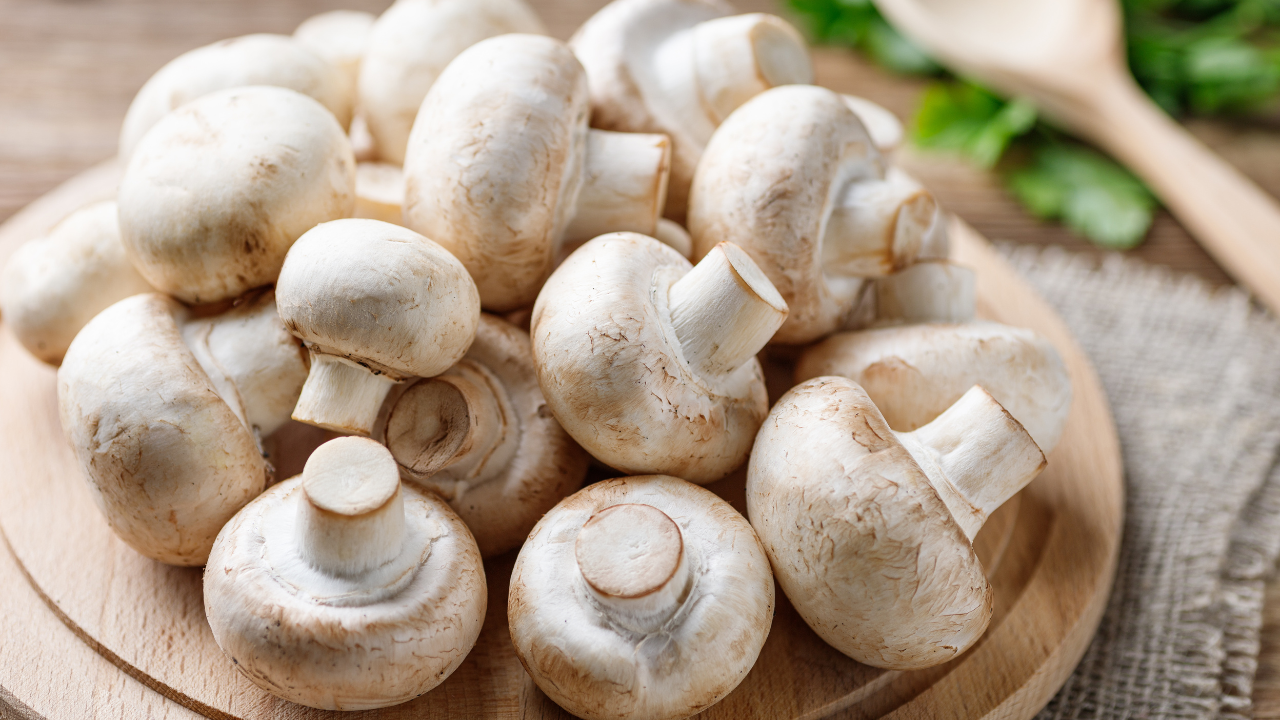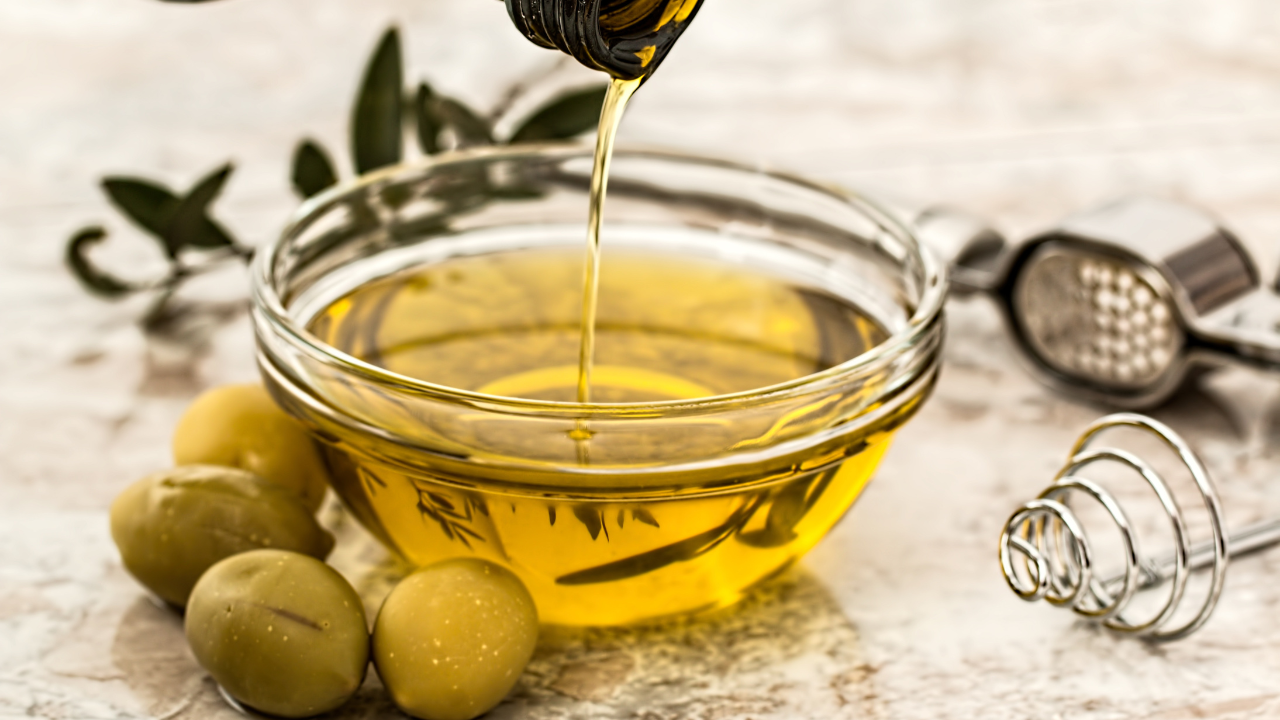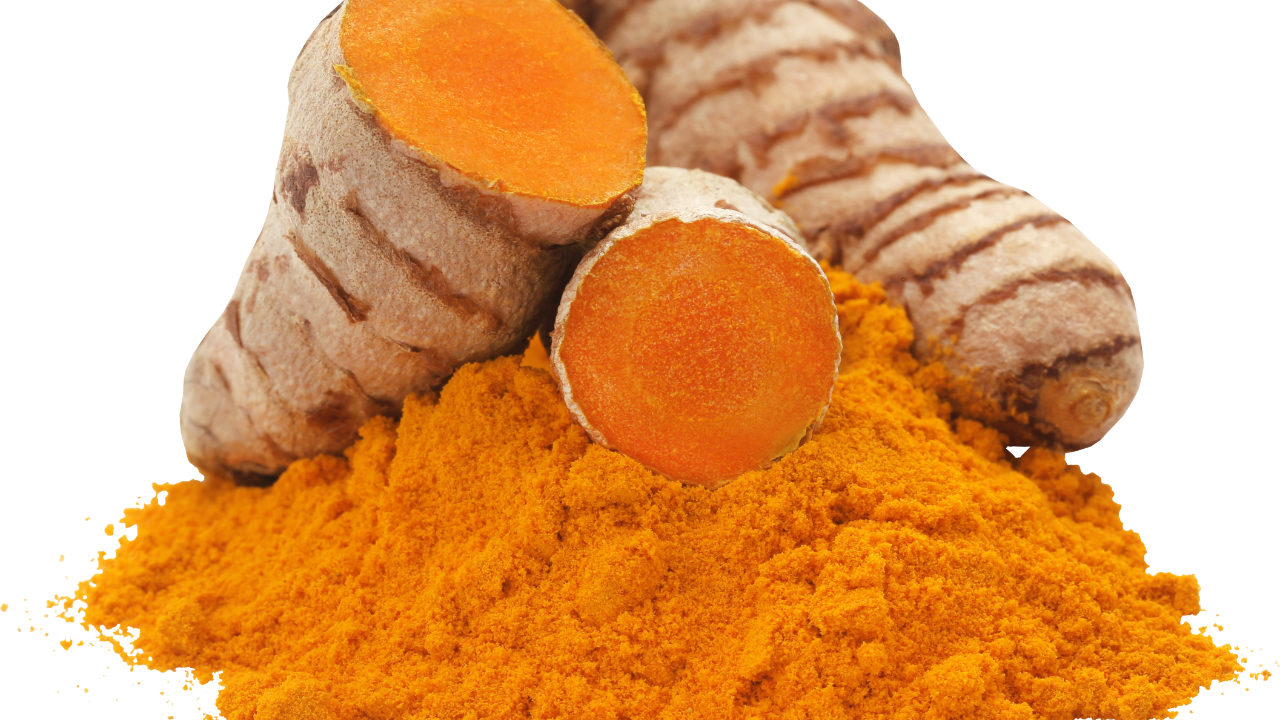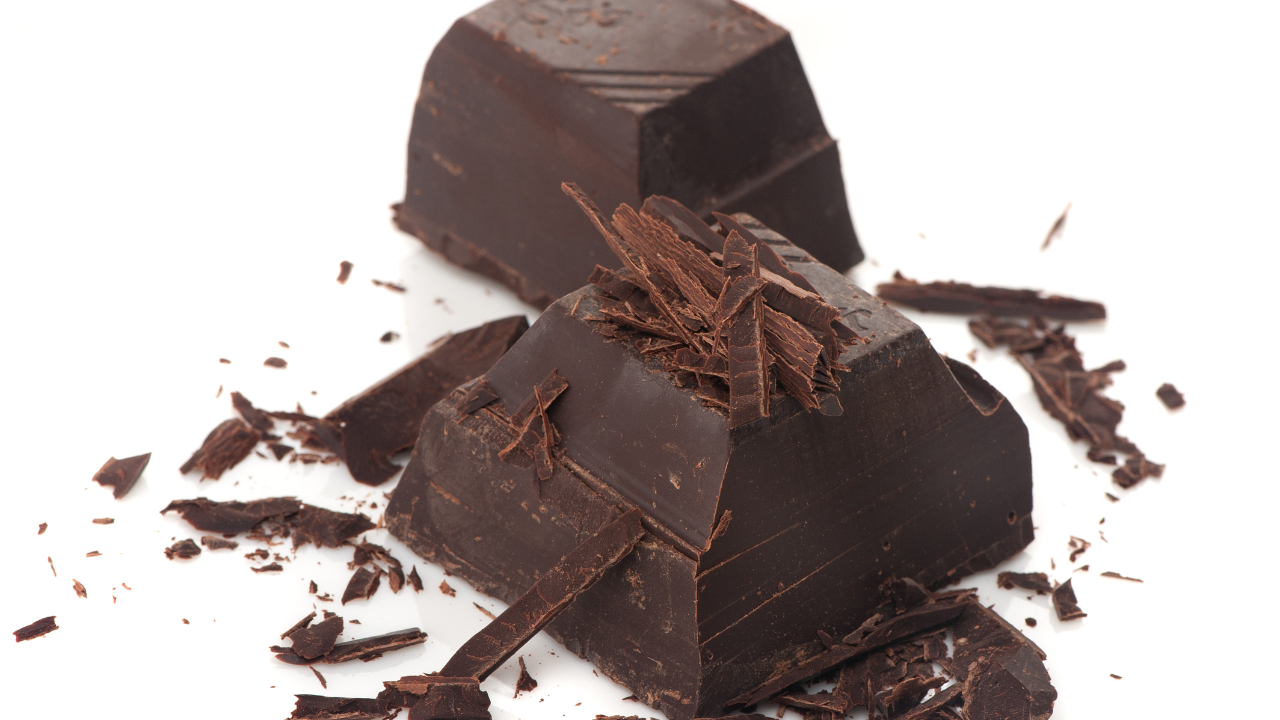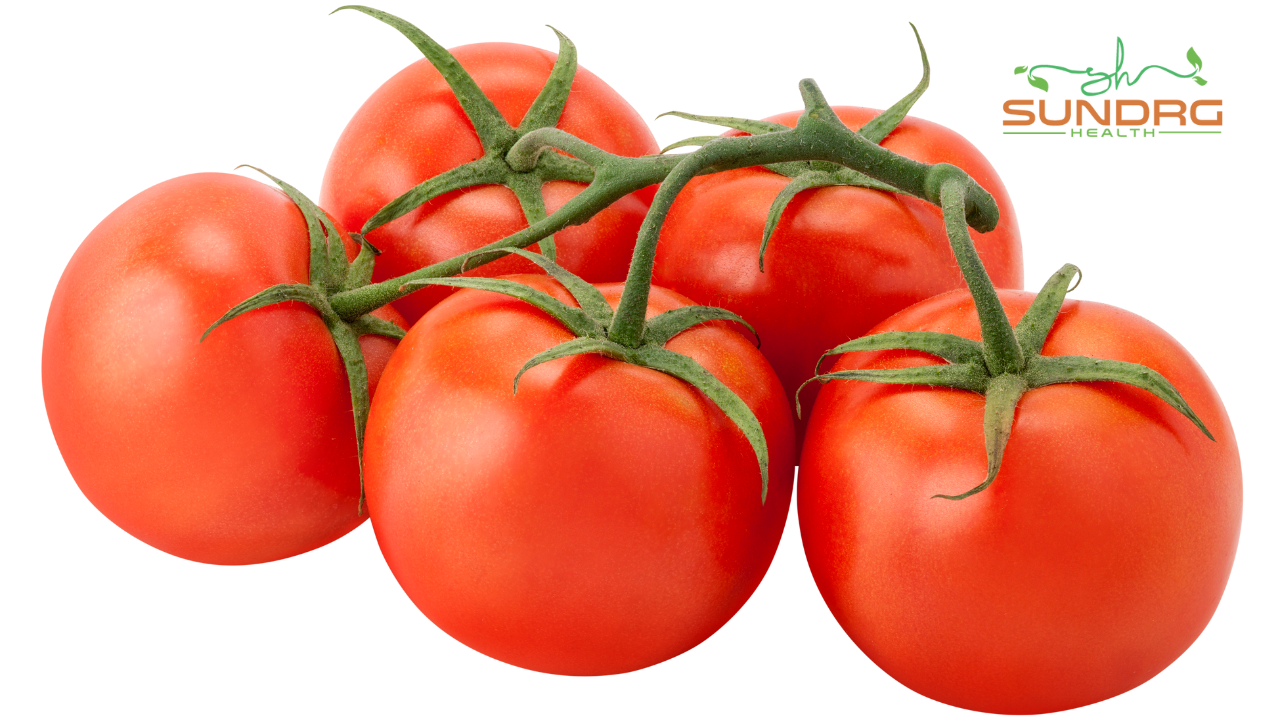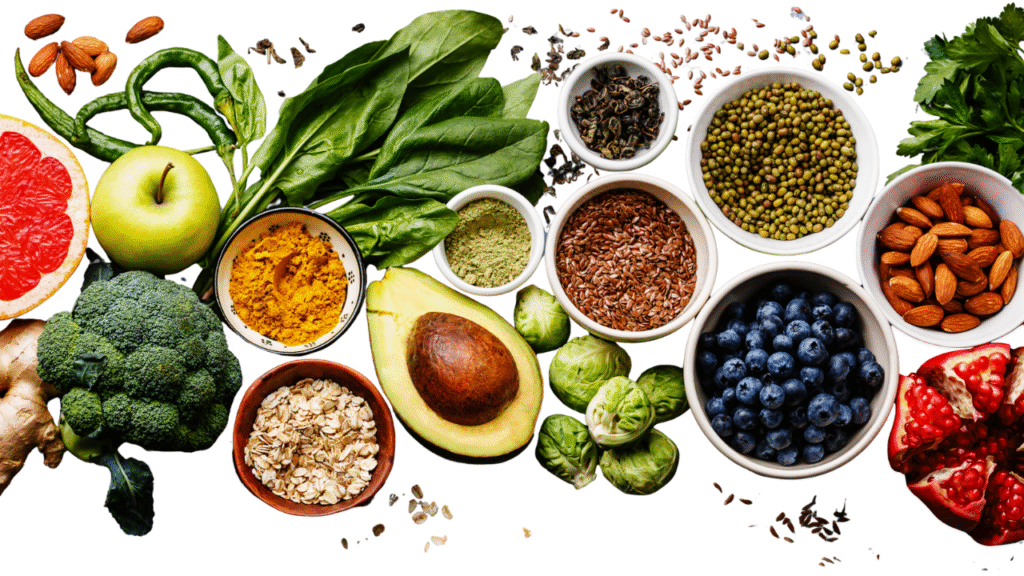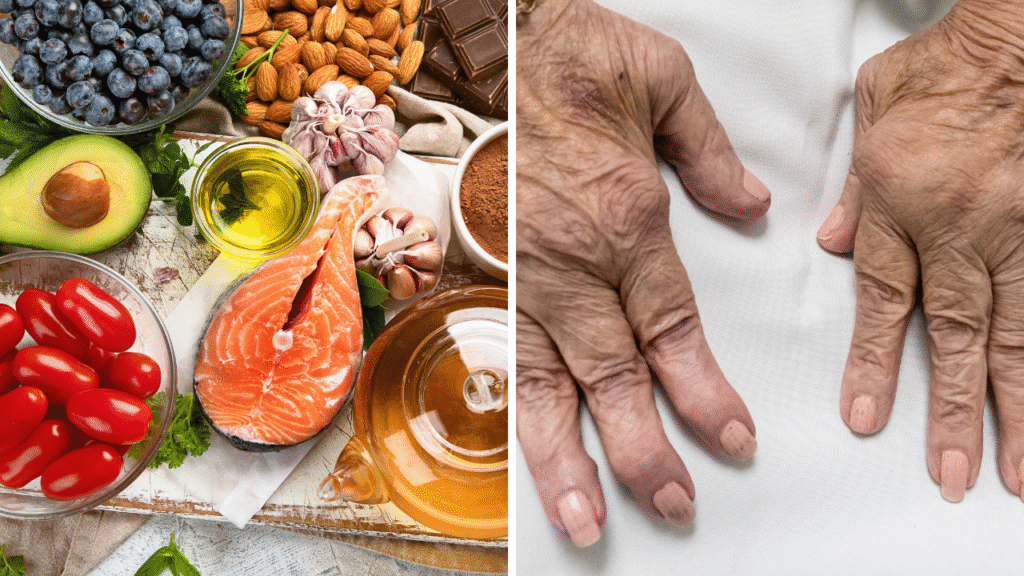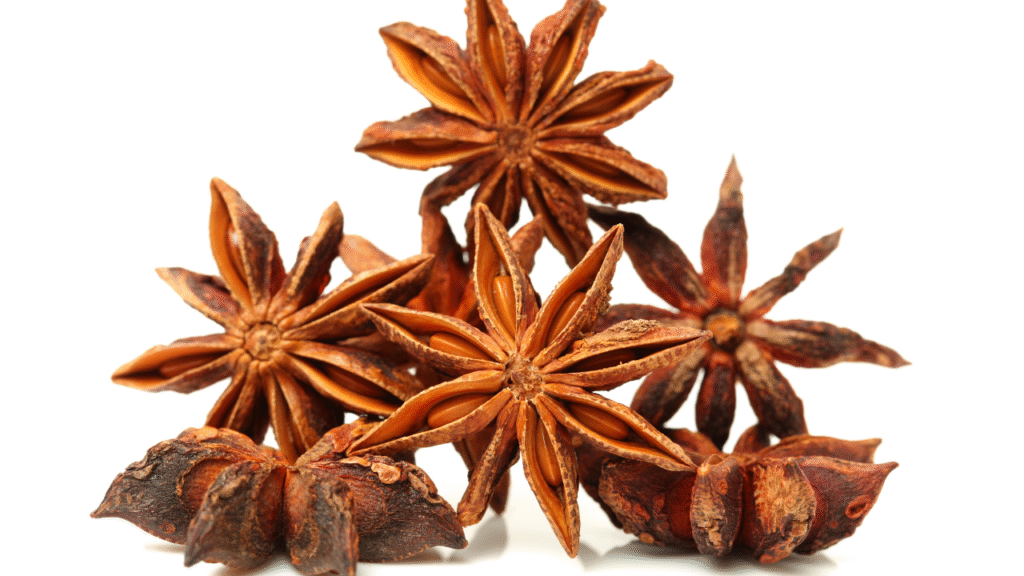Inflammation is a self-repair immunological process that helps the body destroy damaged or dead cells and abnormal tissue. It is a beneficial mechanism that aids in healing infections and wounds. However, when inflammation becomes chronic, it can cause significant damage and lead to various health problems.
Studies have shown that eating foods like olive oil, berries, fruit, veggies, spices, and seafood can help lower the risk of chronic inflammation. Inflammation can help the body fight off sickness and harm but also make people sick. Too much worry, insufficient exercise, and foods that cause inflammation raise the risk, so it’s best to eat foods that reduce inflammation.

Here are 14 top superfoods that are known for their anti-inflammatory properties:
1. Fatty Fish
EPA and DHA are long-chain omega-3 fatty acids in large amounts of fatty fish like salmon, sardines, herring, mackerel, and anchovies. A lot of protein is also present in these fish. Inflammation can be the root cause of some health issues, including metabolic syndrome, heart disease, diabetes, and kidney disease. These fatty acids help lower inflammation. The body converts these fatty acids into chemicals called resolvins and protectins, which lessen inflammation. C-reactive protein (CRP) levels can decrease if you eat salmon or take EPA and DHA supplements, but people with irregular heartbeats may not notice a change in inflammatory markers.
2. Broccoli
As a cruciferous vegetable, broccoli is very healthy and has been linked to a lower chance of heart disease and cancer because it reduces inflammation. Broccoli and other cruciferous veggies have sulforaphane, an antioxidant that lowers cytokines and NF-?B, chemicals in the body that cause inflammation.
3. Cherries
Antioxidants, which can help reduce inflammation, are well known for their benefits. A 2019 study found that older people who drank 16 ounces of tart cherry juice daily for 12 weeks had lower amounts of CRP, a marker of inflammation. In contrast, a different study found that daily consumption for 30 days did not change inflammation in young, healthy people.
4. Berries
Blueberries, raspberries, blackberries, and strawberries are all berries. Berries are small foods high in fiber, vitamins, and minerals. Some are antioxidants called anthocyanins, which can reduce inflammation and make you less likely to get sick. Researchers have found that polyphenols in berries may help with chemotherapy and slow the growth and spread of cancer. The body typically produces NK cells to maintain a healthy immune system. Researchers found that people who ate strawberries had lower amounts of inflammatory markers linked to heart disease.
5. Grapes
Anthocyanins in grapes lessen inflammation and may lower the risk of many diseases, such as heart disease, diabetes, obesity, arthritis, Alzheimer’s, and eye problems. Also, they have a lot of resveratrol, a potent antioxidant that is good for your health in many ways. Studies show that resveratrol can help keep the heart from getting inflamed. Taking extra resveratrol can lower inflammation gene markers like IL-6. Taking grape extract every day can also raise adiponectin levels, which have been linked to getting fat and having a higher chance of cancer.
6. Green tea
Matcha green tea is a healthy drink that lowers the chance of heart disease, cancer, Alzheimer’s disease, obesity, and other illnesses. Its main ingredient is EGCG, an antioxidant and anti-inflammatory. EGCG reduces inflammation by reducing the levels of pro-inflammatory cytokines and the cell damage brought on by fatty acids.
7. Peppers
Both bell and chili peppers are high in vitamin C and antioxidants. Bell peppers contain quercetin, which may help reduce inflammation linked to long-term diseases like diabetes. Chili peppers contain sinapic and ferulic acids, which help the body age healthily.
8. Avocados
Avocados have heart-healthy monounsaturated fats, fiber, potassium, magnesium, carotenoids, and tocopherols. These fats have also been linked to a lower chance of cancer and heart disease. In a 12-week study of 51 overweight people, a chemical found in avocados lowered IL-1? and CRP levels in skin cells starting to form.
9. Mushrooms
Many types of mushrooms, including truffles, portobello mushrooms, and shiitake mushrooms, are grown for food because they are low in calories and high in antioxidants like phenols that protect against inflammation.
11. Extra virgin olive oil
Extra virgin olive oil is a healthy fat high in monounsaturated fats. It is a mainstay of the Mediterranean diet. Research shows that it might lower the risk of heart disease, brain cancer, being overweight, and other serious health problems. Taking extra virgin olive oil as a supplement can significantly lower signs of inflammation. Oleocanthal is an antioxidant found in olive oil that has been compared to pain relievers like ibuprofen. It can reduce inflammation better than pure olive oil.
12. Turmeric
The warm, spicy turmeric is often used in Indian food and is known to help reduce inflammation. Studies have shown that turmeric can help lessen the swelling of arthritis, diabetes, and other conditions. The inflammatory measure CRP will decrease greatly if you eat one gram of curcumin daily and piperine from black pepper. On the other hand, turmeric may not give you enough curcumin. That’s why pills with separated curcumin, which often has piperine, might be better. We need to do more studies to determine how the amount of turmeric affects signs of inflammation.
13. Dark chocolate and cocoa
Dark chocolate is a tasty treat with antioxidants, which lower inflammation. This may lower the risk of disease and help you age healthily. Flavanols, which help keep endothelium cells healthy in the airways, give chocolate its anti-inflammatory effects. Within 3 to 8 hours of eating cocoa flavanols, a study found they can improve vascular function, lower blood pressure, and make arteries less stiff. But more high-quality studies need to be done. Pick dark chocolate with at least 70% cocoa to get these benefits.
14. Tomatoes
Tomatoes contain a lot of vitamin C, potassium, and lycopene, an antioxidant that helps reduce inflammation. Lycopene may also lower chemicals that cause inflammation linked to cancer. Lignopene is a carotenoid better absorbed with fat, so cooking tomatoes in olive oil can help your body absorb it.
Incorporating Superfoods into Your Diet
Incorporating superfoods into your daily diet can be a great way to boost your health. You can add them to your meals, use them while cooking, or consume them as teas or juices. Moreover, You can also use some superfoods topically to reduce inflammation. So, incorporating these nutrient-dense foods into your diet can provide various health benefits and help you lead a healthier life.
Inflammatory foods
Eating healthy foods that reduce inflammation and avoiding foods that cause inflammation, like fast food, frozen microwaveable snacks, and processed meats, can be good for your overall health. If you eat many of these foods, your blood levels of inflammation markers like CRP may rise.
These foods can worsen inflammation.
- Refined carbs include white bread, white rice, crackers, and biscuits.
- Processed meats include bacon, ham, and hot dogs.
- Processed foods, including potato chips and fast food.
- Fried foods include fries, chicken, and mozzarella sticks.
- Sugar-sweetened drinks include soda, sweet tea, and sports drinks.
- Margarine, shortening, and lard
You can eat these foods occasionally if you eat a balanced diet full of whole foods, fruits and veggies, and foods that have been processed very little.
Conclusion
Inflammation can lead to significant health problems, and it is essential to manage it properly. Consuming antioxidant-rich foods, such as those that are close to their original form and brightly colored, can help lower inflammation and prevent chronic illness. Some examples of these foods include pepper, dark chocolate, salmon, and extra virgin olive oil. However, consulting with a healthcare professional before making any significant changes to your diet is recommended.
Links
- Review of Functional and Pharmacological Activities of Berries – PMC (nih.gov)
- How does high DHA fish oil affect health? A systematic review of evidence – PubMed (nih.gov)
- The Forgotten Fruit: A Case for Consuming Avocado Within the Traditional Mediterranean Diet – PMC (nih.gov)
- Health Benefits and Chemical Composition of Matcha Green Tea: A Review – PMC (nih.gov)

